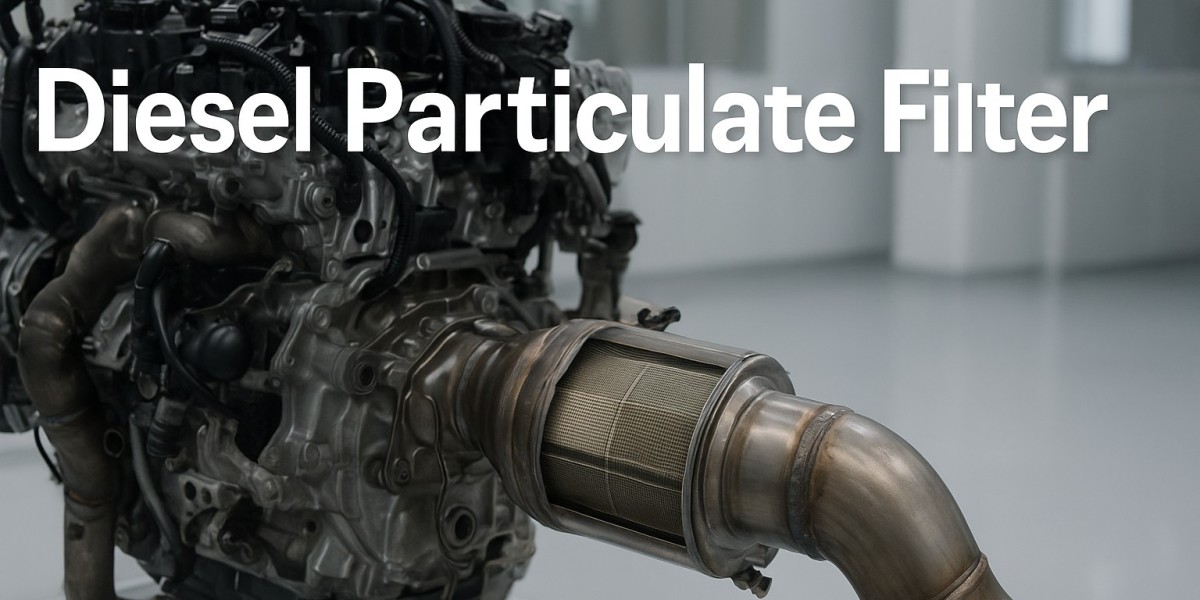The Global Diesel Particulate Filter Market is gaining substantial momentum as governments worldwide enforce emissions regulations to curb the harmful impact of diesel engine pollutants. Diesel particulate filters (DPFs) are now an integral part of modern diesel-powered vehicles, ensuring the removal of soot and particulate matter before exhaust gases are released into the environment. As environmental awareness and sustainability initiatives continue to intensify, the demand for advanced filtration technology in automotive and industrial engines is expected to surge at a rapid pace.
Market Overview
The Global Diesel Particulate Filter Market continues to evolve in response to strict regulatory frameworks addressing air pollution and vehicle emissions. The market was valued at USD 15 billion in 2023 and is projected to nearly double, reaching USD 31.9 billion by 2032 at a CAGR of 8.7% between 2023 and 2032. This growth is driven by stricter norms on particulate emissions, increased diesel vehicle sales in developing regions, and technological advancements in filtration materials and regeneration systems. Manufacturers are also investing in lighter, durable, and high-efficiency DPFs to improve fuel economy without compromising filtration results, supporting market expansion globally.

Industry players witness strong adoption in both passenger and commercial diesel vehicles, with the aftermarket segment thriving due to replacement demand in aging fleets and industrial machinery. Additionally, the shift toward advanced regeneration technologies—such as active and passive regeneration—has improved filter longevity, helping OEMs align with environmental standards and customer performance expectations.
The integration of DPFs with selective catalytic reduction (SCR) systems further enhances pollutant control, making them a crucial component of next-generation clean diesel powertrains. As urban air quality concerns continue to rise, diesel particulate filters play a pivotal role in enabling sustainable diesel mobility and industrial operations.
Growing strategic partnerships between automotive manufacturers and filtration technology companies have strengthened the innovation cycle across the DPF landscape, ensuring manufacturing efficiency and consistent compliance with changing emission norms. The introduction of low-maintenance and long-life filters has also enhanced product appeal among fleet owners seeking reduced downtime and operating costs.
Regional Analysis
Asia Pacific dominates the Global Diesel Particulate Filter Market with a commanding share of 34.6% in 2023. The region’s growth is fueled by rapid automotive production, heightened industrial activity, and increasingly stringent environmental regulations across emerging and developed economies. China and Japan lead regional deployment due to their large automotive bases and regulatory pressure to reduce greenhouse emissions. India is also experiencing an upward shift in demand driven by diesel vehicle usage in logistics, construction, and agriculture sectors. The adoption of clean-fuel mobility policies and Bharat Stage emission standards further amplifies DPF integration in new vehicles.
North America ranks among the most technologically advanced markets with high DPF penetration in commercial vehicles and heavy-duty trucks. Tight EPA regulations and sustainability commitments by logistics and transportation firms contribute significantly to regional demand. Meanwhile, Europe holds a key position with its longstanding Euro emission standards, strong adoption of diesel engines in commercial fleets, and heavy emphasis on environmentally conscious transport solutions. Countries such as Germany, France, and the United Kingdom are witnessing high investment in next-generation DPF systems for industrial engines in addition to automotive uses.
Market Dynamics
The Diesel Particulate Filter Market is driven by tightening emissions regulations, growth in diesel-powered vehicles across emerging regions, and rising consumer awareness of the environmental impacts of particulate emissions. Technological advancements ensure filters are more efficient, durable, and compatible with varied combustion systems. However, high maintenance and replacement costs can hinder adoption in price-sensitive consumer segments. Opportunities arise from integration of smart monitoring sensors within filters, material innovations that reduce filter weight, and retrofit solutions for aging diesel fleets across global markets.
Download a Complimentary PDF Sample Report : https://dimensionmarketresearch.com/report/diesel-particulate-filter-market/request-sample/
Market Segmentation
The market can be segmented descriptively according to filter type, substrate material, and application. Wall-flow filters remain the most widely adopted due to their highly efficient particulate trapping mechanism, making them ideal for passenger and commercial vehicles. Cordierite and silicon carbide substrates continue to dominate because of their heat resistance and durability, enabling smooth regeneration cycles while maintaining efficiency. Metal fiber and other advanced substrates are gaining traction where extreme temperature resistance and performance under heavy loads are required. On the application front, DPFs are extensively used in passenger cars, heavy commercial vehicles, and off-road machinery including construction and agricultural engines. With rising electrification trends, the demand for filters in hybrid diesel systems is also emerging as a new growth avenue.
Future Outlook
The market trajectory reflects a steady, long-term demand driven by emission control policies and automotive OEM commitment to cleaner diesel solutions. Diesel engines continue to maintain relevance globally due to their power, efficiency, and commercial applications. The future landscape is expected to see rapid adoption of DPFs integrated with IoT-enabled monitoring systems, high-regeneration efficiency technology, and solutions designed to reduce maintenance frequency while extending operational life cycles. Retrofit programs for heavy-duty diesel machinery will also support long-term growth.
FAQs
What is a diesel particulate filter (DPF)?
A diesel particulate filter is an exhaust aftertreatment device that traps and removes particulate matter and soot from diesel engine emissions before gases exit the tailpipe.
Why is demand for diesel particulate filters increasing?
Governments across the world have introduced stringent emission regulations to control air pollution, leading to mandatory installation of DPFs in new diesel vehicles and industrial engines.
Which vehicles commonly use diesel particulate filters?
DPFs are widely used in passenger diesel vehicles, light and heavy commercial trucks, buses, construction machinery, agricultural equipment, and industrial engines.
How do diesel particulate filters regenerate?
Regeneration occurs either passively or actively by burning accumulated soot at high temperatures, clearing the filter and restoring its ability to trap new particulate emissions.
Is the aftermarket segment significant in the DPF market?
Yes, replacement demand due to clogging, aging fleets, and maintenance requirements plays an important role in driving aftermarket revenue.
Summary of Key Insights
The Global Diesel Particulate Filter Market is set for robust expansion as emission regulations strengthen across international regions and industrial sectors. The market is projected to nearly double between 2023 and 2032, supported by sustainability initiatives, rising vehicle production in Asia Pacific, and technological innovation across filtration materials and regeneration processes. Wall-flow DPFs and silicon carbide substrates dominate product adoption while heavy-duty and commercial applications represent significant revenue opportunities. The future of the market will be shaped by smart DPF solutions, hybrid diesel engine compatibility, and retrofit initiatives addressing legacy diesel fleets.
Purchase the report for comprehensive details : https://dimensionmarketresearch.com/checkout/diesel-particulate-filter-market/



